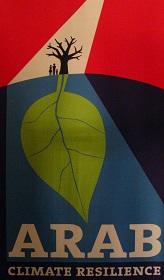Using AI to control energy for indoor agriculture
30 September 2024
Published online 19 September 2010

[Syria] Scientists gathered in Damascus, Syria, kick-started the first meeting of the Arab Climate Resilience Initiative, citing water scarcity and desertification as two of the biggest threats facing the region over the next few decades.
The meeting, organized by the United Nations Development Programme (UNDP), took place on 15–16 September. Researchers and policymakers from 17 Arab states met to discuss national and regional threats, the latest research and new ways to counter the impact of climate change.
"Adaptation is the primary concern for the Arab region, but we need to work together and keep in mind the varying capabilities of the different countries to adapt quickly enough," said Fatma El-Mallah, an advisor to the director-general on climate change at the League of Arab States.
The UNDP will present the results of the science-based initiative to Arab states governments to seek partners to develop an integrated response to the climate threat, explained Adel Abdellatif, chief of the Regional Programme Division at the Regional Bureau for Arab States in UNDP.
Most of the Arab states fall below the water scarcity level of 1,000 m3 per capita annually, according to the UNDP Arab Human Development report. Over 90% of the region lies within arid or semi-arid areas1. Booming population growth, one of the fastest in the world, stretches water and agriculture resources to their limits. Climate change threatens to put greater stress on the already fragile ecosystem.
"The climate is like an engine, it moves moisture and heat around the world. We are unlucky to be in this part of the world, where we receive less water than other areas," said Hamed Asaf, from the Economic and Social Commission for Western Asia (ESCWA). "Climate change is going to shift even more water away from the region towards the equator."
Even fertile areas of the Middle East, such as the Mediterranean Sea basin, are estimated to come under increasing pressure as higher temperatures, reduced rainfall, and more extreme weather endanger livelihoods.
Climate scientists from nearly all Arab countries presented national and regional studies of water issues at the meeting. Topics and discussions ranged from the increased salinity of Bahrain's soil to decreased snowfall on mountain tops in Lebanon and the dangers of rising seawaters to coastal cities including Alexandria in Egypt and Doha in Qatar.
"Water scarcity was one of the drivers to start human civilization in this region, as people started to think of ways to bring water to their cities. However, things are going to be different, things are going to be drier," said Asaf.
Eman Ghoniem, a geomorphologist at University of North Carolina, presented a climate model which predicted that a 1 m seawater level rise could inundate 41.5 thousand km2 of land in Arab states, displacing some 12.5 million people. She stressed that science and research can play a pivotal role in the response to the threat.
"The Arab states are facing a problem due to climate change. I ask all policymakers to make use of remote sensing technology so we can reach new scientific breakthroughs that can mitigate the effects of climate change on the populations," said Ghoniem.
Some of those in attendance at the meeting complained the conference was a waste of time, offering nothing new. "We really do not have time to wait. We need to be coming up with concrete plans, rather than holding more pointless meetings," said one researcher who preferred not to be named.
The next meeting of the Arab Climate Resilience Initiative will take place 20 – 21 September in Cairo, Egypt, with a focus on sea level rises associated with climate change. That meeting will be followed 6 – 7 October by a third meeting in Manama, Bahrain on energy efficiency. A final, high-level regional launch event will take place early November in Morocco, where the UNDP and partnering Arab governments will launch a regional initiative response to climate change, based on the knowledge and ideas generated during the meetings.
doi:10.1038/nmiddleeast.2010.202
Stay connected: